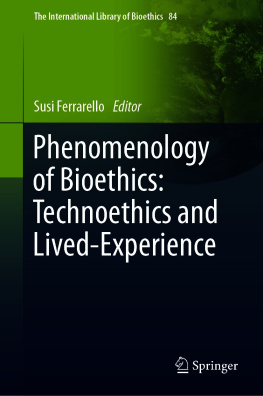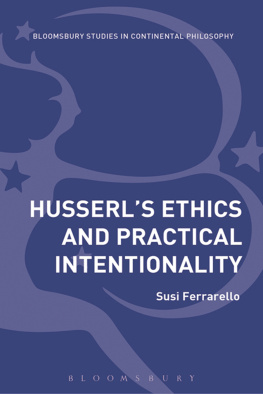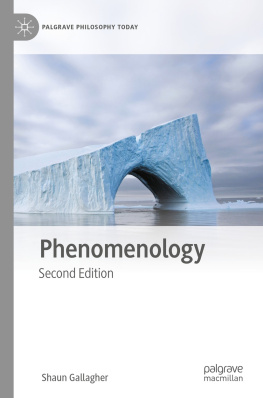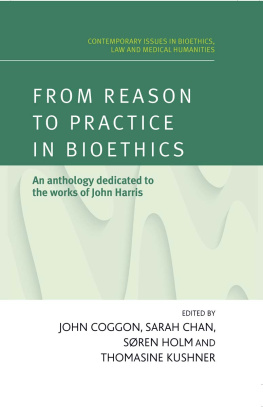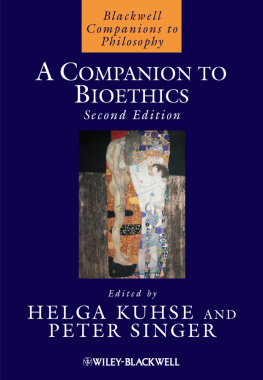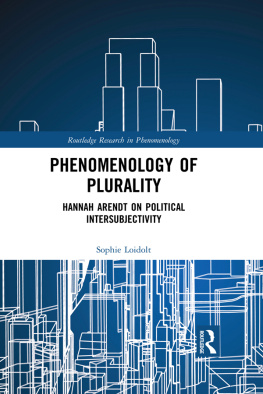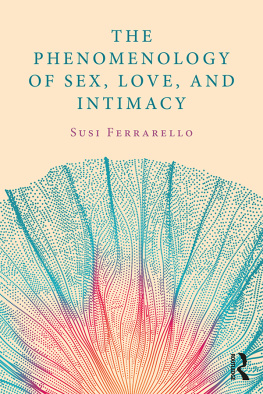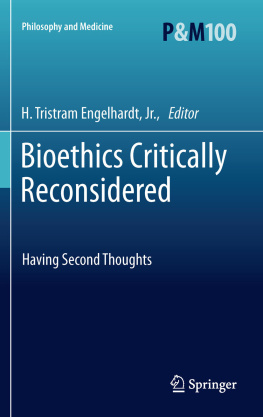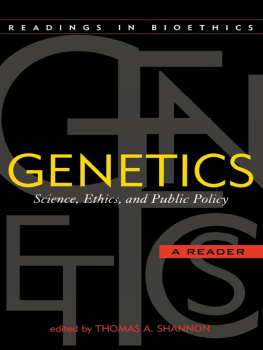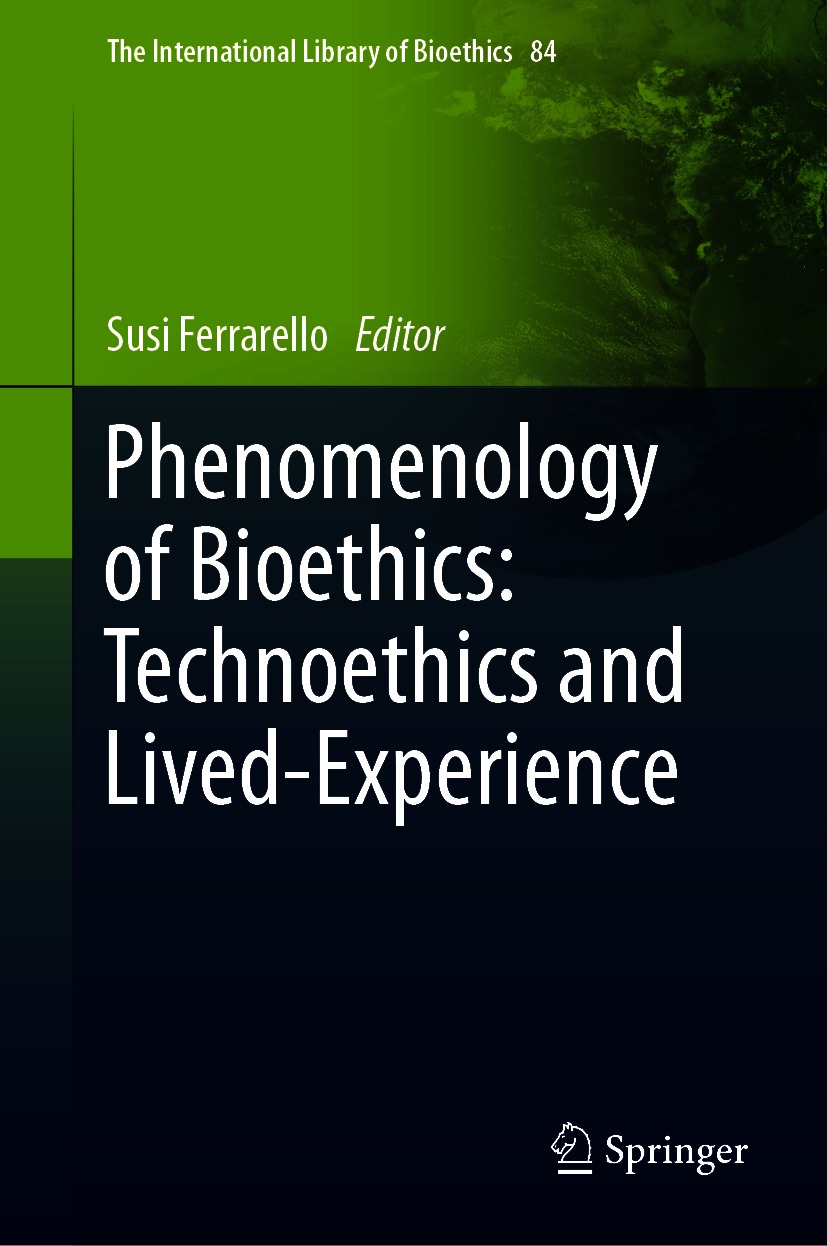Volume 84
The International Library of Bioethics
Series Editor
Dennis R. Cooley
North Dakota State University, History, Philosophy, & Religious Studies, Fargo, ND, USA
Editorial Board
Terry Carney
Faculty of Law Building, University of Sydney, Sydney, Australia
Marcus Dwell
Philosophy Faculty of Humanities, Universiteit Utrecht, Utrecht, Utrecht, The Netherlands
Sren Holm
Centre for Social Ethics and Policy, The University of Manchester, Manchester, UK
Gerrit Kimsma
Radboud UMC, Nijmegen, Gelderland, The Netherlands
David Novak
University of Toronto, Toronto, ON, Canada
Daniel P. Sulmasy
Edmund D. Pellegrino Center for Clinical, Washington, DC, USA
Advisory Editor
David N. Weisstub
Faculty of Medicine, University of Montreal, Montral, QC, Canada
Founding Editors
David C. Thomasma
Universit de Montral, Dordrecht, Zuid-Holland, The Netherlands
David N. Weisstub
Universit de Montral, Montral, QC, Canada
Thomasine Kimbrough Kushner
University of California, Berkeley, CA, USA
The TheInternational Library of Bioethics formerly known as the International Library of Ethics, Law and the New Medicine comprises volumes with an international and interdisciplinary focus on foundational and applied issues in bioethics. With this renewal of a successful series we aim to meet the challenge of our time: how to direct biotechnology to human and other living things ends, how to deal with changed values in the areas of religion, society, and culture, and how to formulate a new way of thinking, a new bioethics. formerly known as the International Library of Ethics, Law and the New Medicine comprises volumes with an international and interdisciplinary focus on foundational and applied issues in bioethics. With this renewal of a successful series we aim to meet the challenge of our time: how to direct biotechnology to human and other living things' ends, how to deal with changed values in the areas of religion, society, and culture, and how to formulate a new way of thinking, a new bioethics.
The TheInternational Library of Bioethics focuses on the role of bioethics against the background of increasing globalization and interdependency of the worlds cultures and governments, with mutual influencing occurring throughout the world in all fields. The series will continue to focus on perennial issues of aging, mental health, preventive medicine, medical research issues, end of life, biolaw, and other areas of bioethics, whilst expanding into other current and future topics. focuses on the role of bioethics against the background of increasing globalization and interdependency of the world's cultures and governments, with mutual influencing occurring throughout the world in all fields. The series will continue to focus on perennial issues of aging, mental health, preventive medicine, medical research issues, end of life, biolaw, and other areas of bioethics, whilst expanding into other current and future topics.
We welcome book proposals representing the broad interest of this series' interdisciplinary and international focus. We especially encourage proposals addressing aspects of changes in biological and medical research and clinical health care, health policy, medical and biotechnology, and other applied ethical areas involving living things, with an emphasis on those interventions and alterations that force us to re-examine foundational issues.
More information about this series at http://www.springer.com/series/16538
Phenomenology of Bioethics: Technoethics and Lived-Experience
1st ed. 2021

Logo of the publisher
Editor
Susi Ferrarello
California State University, Hayward, CA, USA
ISSN 2662-9186 e-ISSN 2662-9194
The International Library of Bioethics
ISBN 978-3-030-65612-6 e-ISBN 978-3-030-65613-3
https://doi.org/10.1007/978-3-030-65613-3
Chapter 8 is licensed under the terms of the Creative Commons Attribution 4.0 International License (http://creativecommons.org/licenses/by/4.0/). For further details see license information in the chapter.
The Editor(s) (if applicable) and The Author(s), under exclusive license to Springer Nature Switzerland AG 2021
This work is subject to copyright. All rights are solely and exclusively licensed by the Publisher, whether the whole or part of the material is concerned, specifically the rights of translation, reprinting, reuse of illustrations, recitation, broadcasting, reproduction on microfilms or in any other physical way, and transmission or information storage and retrieval, electronic adaptation, computer software, or by similar or dissimilar methodology now known or hereafter developed.
The use of general descriptive names, registered names, trademarks, service marks, etc. in this publication does not imply, even in the absence of a specific statement, that such names are exempt from the relevant protective laws and regulations and therefore free for general use.
The publisher, the authors and the editors are safe to assume that the advice and information in this book are believed to be true and accurate at the date of publication. Neither the publisher nor the authors or the editors give a warranty, expressed or implied, with respect to the material contained herein or for any errors or omissions that may have been made. The publisher remains neutral with regard to jurisdictional claims in published maps and institutional affiliations.
This Springer imprint is published by the registered company Springer Nature Switzerland AG
The registered company address is: Gewerbestrasse 11, 6330 Cham, Switzerland
Introduction
As a phenomenologist I found myself in a sort of predicament when I was assigned to teach bioethics a few years ago. Where was the entrance door to this complex building? How could I walk through each of its rooms in such a way that my students would feel at ease in taking this tour with me? What should I take from it that would help us to thrive? What should students learn from a class in bioethics? What is my duty as a teacher of this discipline?
The answers for me rely on lived experience. Even though bioethics is an extremely young discipline, its boundaries expanded exponentially in the past decades at the same pace as the technological changes that revolutionized our society. I find hopeless to try to tell my students what bioethics is tout court. I believe, instead, that it is absolutely fruitful to show them what they could do with it, what kind of questions bioethics could raise, how it could improve our lived experience . This is, also, the main focus of this volume. A fruitful bioethics is the one whose roots are deep in the lived experience . In this book as well, I propose a case by case way of reasoning on the multitude of problems that we have to cope with when we do bioethics, that is, when we want to reflect responsibly on the richness of biological life (). Being phenomenology a discipline rooted in the live-experience, the interaction between phenomenology and bioethics is particularly felicitous and productive.

